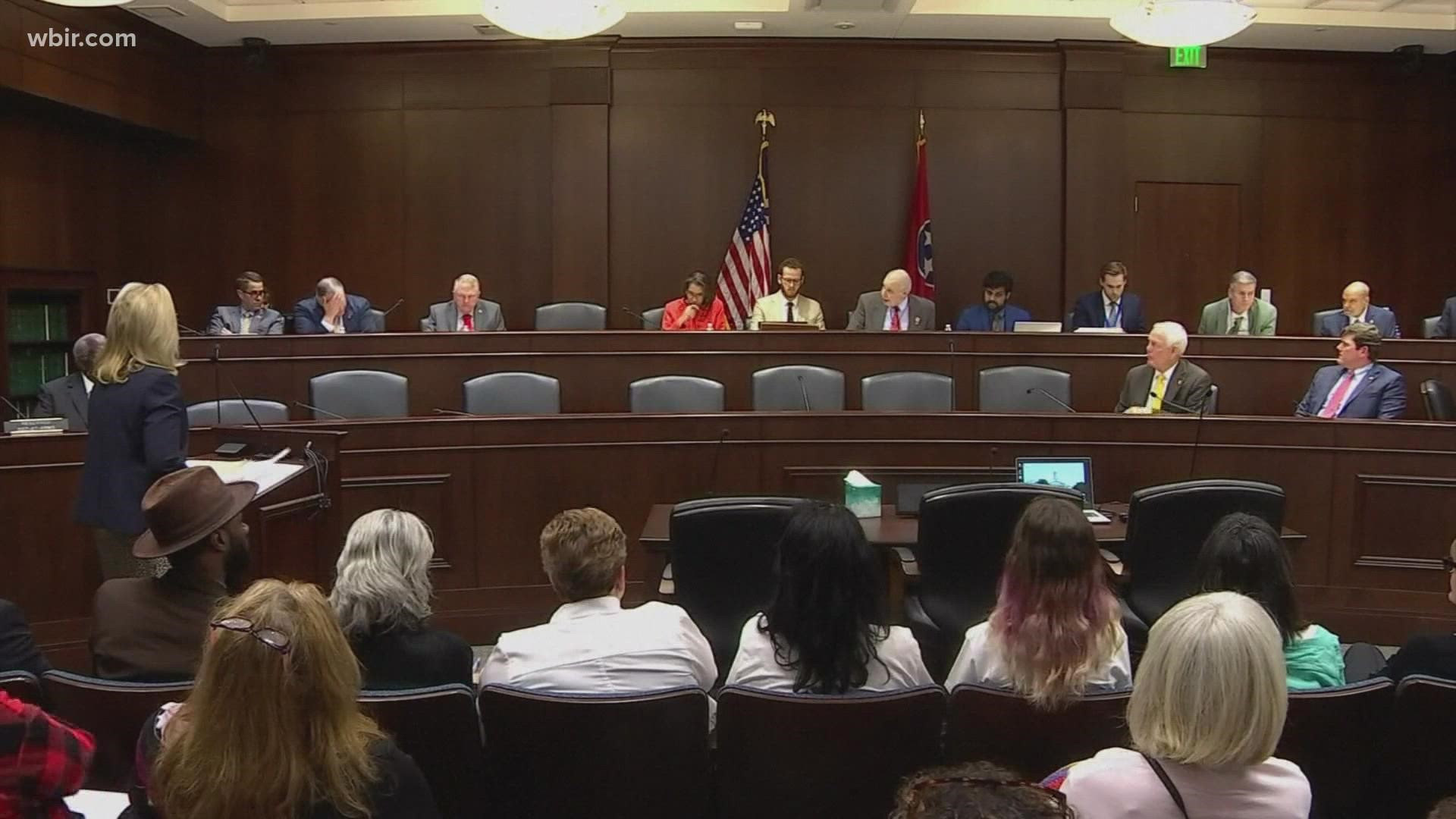KNOXVILLE, Tenn. — The House of Representatives Health subcommittee discussed H.B. 2779 on Tuesday, a bill modeled after recent Texas legislation that allows people to sue providers who perform an abortion.
Representative Rebecca Alexander (R - Jonesborough) spoke about the bill before the subcommittee on Tuesday. She said it was modeled directly after the Texas legislation, but would go further and block all abortion procedures. Texas law restricts abortions to under 6 weeks after conception, but Tennessee law totally restricts abortion completely.
She said the Texas law allows citizens to sue others in civil court instead of criminal court, and the bill would do the same in Tennessee. There would be a minimum $10,000 fine for physicians who perform an abortion, and anybody would be able to bring a lawsuit forward regardless of any standing they have in the case.
"This is my bill," she said while talking to the subcommittee.
Representative Bob Freeman (D - Nashville) asked her whether she believed the bill would allow families of rapists to sue victims if they get an abortion after they are raped. He said around one in six women in Tennessee are survivors of rape.
"You could have a rapist and that rapist could impregnate a young lady, a minor, and the rapist's mother or father could bring suit against that minor if they decided to get an abortion if this passes," Freeman said.
She said while the bill says rapists would not be able to bring charges against victims. However, she said it says nothing about their friends or families, and victims would end up having to pay a $10,000 fine.
"My assumption is that they could, other than the rapist," said Alexander.
An attorney later clarified that women who receive an abortion could not be sued under the bill, but physicians who perform it could be sued and need to pay a $10,000 fine. He also said the bill would allow investigators to ask people who lose a pregnancy how it was lost.
"This allows people who have no knowledge, no standing, they have not been harmed, to bring a lawsuit against any doctor that they believe has performed an abortion," Freeman said.
"My intent is to bring a bill that protects the unborn life in this state," said Alexander.
Dr. Aaron Campbell, a physician specializing in gynecology with the University of Tennessee Medical Center, also spoke during the subcommittee meeting. He said he opposed the bill.
"This bill will significantly impact my ability and the ability of all my OGBYN colleagues throughout Tennessee to make informed, safe and private healthcare decisions with and for our patients," he said. "It's important to note that abortions will occur whether or not they are legally accessible. What is important for the legislature is to recognize that worldwide, the highest of unsafe abortions are completed in areas with the most restrictive abortion laws."
He said when people seek out abortion in places with highly restrictive abortion laws, they often are met with morbidities and mortality. He also said around a quarter of women in the U.S. will get an abortion in their lives.
He also said the bill would affect how physicians handle some common health situations like miscarriages where pregnancy may have cardiac activity, or in situations when women go into labor too early for a pregnancy to be viable.
"This bill undermines the complexity of healthcare issues that may be experienced by pregnant women and their physicians," he said.
The bill passed the subcommittee and will be discussed in the House of Representatives' Health Committee on March 23.

